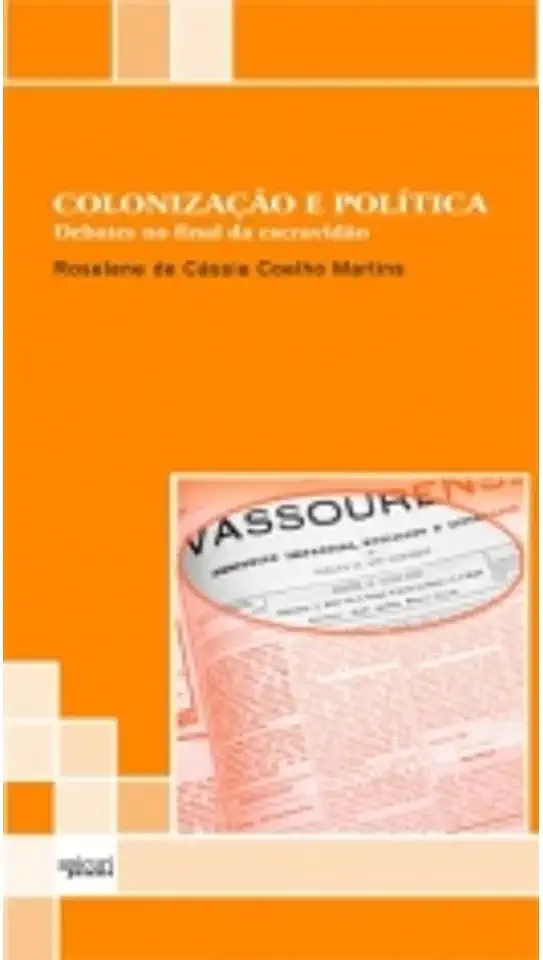
Colonization and Politics - Debates at the End of Slavery - Roselene de Cássia Coelho Martins
Colonization and Politics: Debates at the End of Slavery
By Roselene de Cássia Coelho Martins
A Must-Read for Historians, Political Scientists, and Anyone Interested in the History of Slavery and its Aftermath
In her groundbreaking book, Colonization and Politics: Debates at the End of Slavery, Roselene de Cássia Coelho Martins offers a comprehensive and nuanced analysis of the debates surrounding colonization and the future of slavery in Brazil in the late 19th century. Drawing on a wealth of primary and secondary sources, Martins provides a rich and detailed account of the complex political, economic, and social forces that shaped these debates.
A Pivotal Moment in Brazilian History
The end of slavery in Brazil in 1888 was a watershed moment in the country's history. For over three centuries, slavery had been an integral part of Brazilian society and economy. But by the late 19th century, the institution was under increasing attack from both within Brazil and abroad.
The Colonization Debate
One of the most contentious issues of the day was the question of what to do with the newly freed slaves. Some argued that they should be given land and other resources to help them become self-sufficient farmers. Others argued that they should be encouraged to emigrate to Africa or other parts of the world. Still others argued that they should be integrated into Brazilian society as full and equal citizens.
Political Maneuvering and Compromise
The debates over colonization and the future of slavery were often heated and acrimonious. Different political factions and interest groups jockeyed for position, and compromises were often difficult to reach. But ultimately, a consensus emerged in favor of a gradual and compensated emancipation of slaves.
The Legacy of Colonization
The colonization debate had a profound impact on the course of Brazilian history. The decision to free the slaves without providing them with adequate land or other resources led to widespread poverty and social unrest. It also contributed to the rise of a new political elite that was more responsive to the needs of the former slaves.
A Valuable Contribution to the Historiography of Slavery
Colonization and Politics is a major contribution to the historiography of slavery and its aftermath in Brazil. Martins's book is a must-read for historians, political scientists, and anyone interested in understanding the complex and often contradictory forces that shaped the end of slavery in Brazil.
Praise for Colonization and Politics
"A magisterial work of scholarship. Martins has written the definitive history of the colonization debate in Brazil. This book is essential reading for anyone interested in the history of slavery and its aftermath."
—Stanley J. Stein, Princeton University
"A brilliant and insightful analysis of the political and social forces that shaped the end of slavery in Brazil. Martins's book is a major contribution to the historiography of slavery and its aftermath."
—Robert W. Slenes, University of California, Berkeley
"A must-read for anyone interested in the history of Brazil and the complex and often contradictory forces that shaped the end of slavery. Martins's book is a major contribution to the historiography of slavery and its aftermath."
—Emília Viotti da Costa, University of São Paulo
Enjoyed the summary? Discover all the details and take your reading to the next level — [click here to view the book on Amazon!]